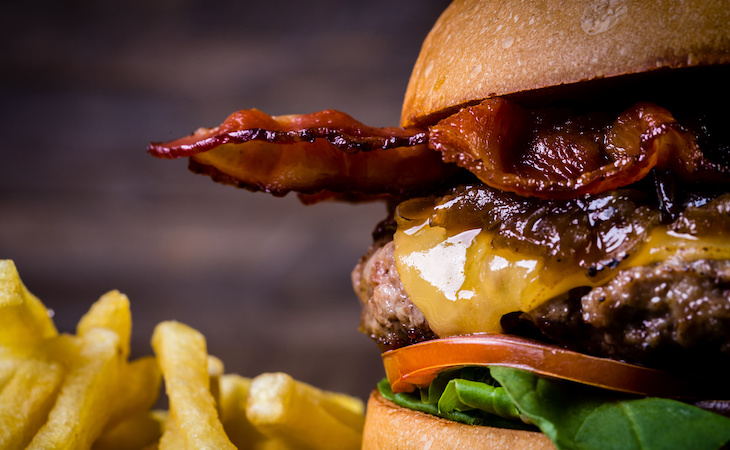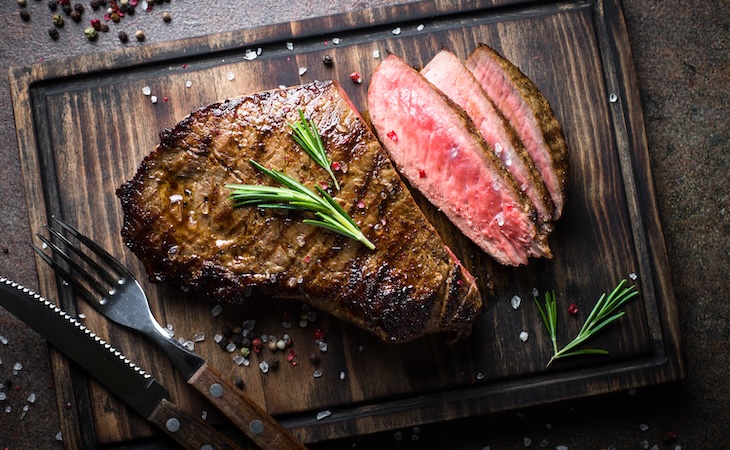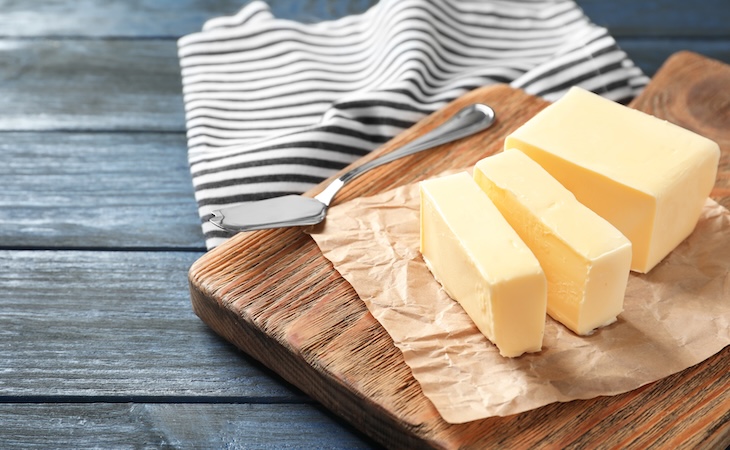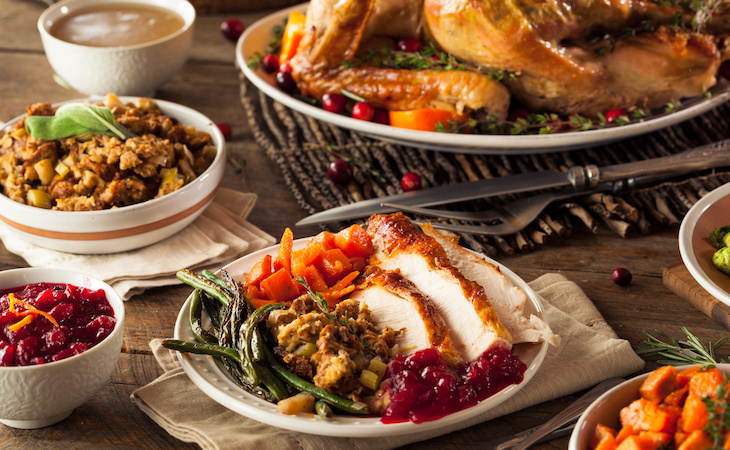Noise, light, and temperature—these are three aspects of your external environment that affect the way you sleep. But did you know that food affects sleep too? Yep, it’s true.
It turns out there are definitely certain foods to avoid before bed if you want to get a sound night’s sleep. Here, learn about how food affects the way you sleep and find out what not to eat before bed.
How food affects sleep
No matter how tired you are, ultimately your body decides when and how well you sleep. An area that has particular sway is your stomach. Specifically, we’re talking about the foods that enter your body under the guise of good taste but show their true colors when you try to get to sleep.
These are the best late-night snacks to enjoy before bed:
Research even suggests that a bad night’s sleep can lead you to crave more unhealthy snacks and junk food the next day. [1] So, given the fact your nighttime food choices can have lasting health ramifications, here’s our flagged list of foods to avoid before bed.
10 foods to avoid before bedtime
Which foods exactly have the potential to ruin your sleep? Here’s a list of the top 10 things to avoid before sleep.
1. Chocolate
Before you reach for a candy bar before bed, know this: Chocolate is packed with sugar, which can have a serious impact on how well you sleep.
A study published in the Journal of Clinical Sleep Medicine found that participants who ate more sugar and saturated fats experienced less deep sleep and woke up more throughout the night. [2]
Read more about how sugar affects sleep. Chocolate also contains some caffeine, which can stimulate the nervous system and keep you awake for hours. [3]
2. Bacon cheeseburger
Sometimes you’re just going to crave a juicy bacon cheeseburger, but this is definitely a food you want to avoid eating before bed.
The offending sleep ingredient in this meal is the high-fat content which triggers the production of acid in the stomach and leads to sleep-inhibiting acid reflux—a no-no before bed. [4, 5]
Doctors recommend avoiding heartburn-triggering foods including anything fried or fatty too close to bedtime to ensure you get a good night’s sleep.
3. Chicken
Chicken or any type of protein on its own takes a lot of energy to digest, and lengthening this process could throw your sleep schedule out of whack. [6]
Protein contains an amino acid known as tyrosine, which promotes brain activity. [7] A pairing of protein and carbs, however, is one of the best things to eat before bed. [8]
Having a snack that includes one serving of protein and one serving of carbs (such as an apple with almond butter) will help keep your blood sugar levels stable and prevent you from waking up in the middle of the night.
Here’s why turkey makes you so sleepy.
4. Pizza
Ah, one of the most classic late-night meals, pizza, is actually not the best option to eat before bed—no matter how tasty it is. Cheese is rich in fat and tomato sauce is acidic, making this popular late-night dish exactly the wrong thing to eat before bed.
To avoid nighttime heartburn that could prevent you from getting a good night’s sleep, doctors suggest making lunchtime your biggest meal of the day and quitting eating three hours before bed. [9, 10]
5. Ice cream
It’s always nice to enjoy dessert after dinner, but ice cream isn’t the best option for sleep.
Dairy can have a ton of fat and even low-fat ice creams can be high in sugar—which means you probably will not be getting a ton of sleep if you eat ice cream late in the evening. [4, 9, 11]
6. Sugary cereal
Cereal that’s high in sugar can spike your blood sugar and put your body’s fat “storage” to work through the night. [11]
Sugar doesn’t just lead to poor sleep, though. Research published in The American Journal of Clinical Nutrition has shown that when sleep-deprived, you tend to eat more junk food. [12]
7. Celery
This might seem like an outlier on our list of what not to eat before bed, but celery is a natural diuretic. [13] That means it quickly pushes water through your system—ultimately leading you into the bathroom instead of your bed.
Here’s how to stay hydrated without waking up to pee in the middle of the night.
8. Pasta
A big bowl of pasta is total comfort food until you try to fall asleep that is. Pasta is straight carbohydrates which, like sugar, activates that fat “storage” system in your body and then lets it run through the night. [14, 16]
A better option would be whole-wheat pasta, which is made from complex carbs that are higher in fiber and won’t spike your blood sugar. [15]
9. Hot peppers
Thinking of placing an order for something spicy at 10 pm? Think again. Spices like cayenne can get your blood flowing and increase your body temperature which is the opposite of where it needs to go for a good sleep. [17]
Some people even report that eating spicy foods before bed gives them vivid dreams. [18]
10. Coffee and alcohol
While not solid foods, these two villains are in a league of their own when it comes to sleep. Coffee can keep you wide-eyed thanks to its caffeine content (which will stay in your system long after you drink it).
Alcohol, meanwhile, can prevent you from reaching a restorative deep sleep, so it’s best just stay away from these two altogether. [3, 19] Alcohol can also make existing sleep conditions, like sleep apnea, worse. [19, 20]
FAQs
Is it OK to eat right before bed?
It’s OK to have a small snack before bed that contains ingredients that can help you fall asleep, such as oatmeal, avocado toast, and pistachios. [9] Avoid heavy, larger meals before bed as they can make it harder to go to sleep.
What foods can ruin your sleep?
Foods that ruin your sleep are those high in sugar and fats, such as chocolate, ice cream, pizza, and burgers.
Can certain ways of eating help you sleep better? Learn whether the Mediterranean diet can help you sleep better.
References
- Greer, S. M., Goldstein, A. N., & Walker, M. P. (2013). The impact of sleep deprivation on food desire in the human brain. Nature communications, 4, 2259. https://doi.org/10.1038/ncomms3259
- St-Onge MP, Roberts A, Shechter A, Choudhury AR. Fiber and saturated fat are associated with sleep arousals and slow wave sleep. J Clin Sleep Med 2016;12(1):19–24. https://doi.org/10.5664/jcsm.5384
- Cleveland Clinic. The Buzz About Coffee, Chocolate and the Caffeine We Consume. https://health.clevelandclinic.org/know-whats-in-your-coffee
- Crispim, C. A., Zimberg, I. Z., dos Reis, B. G., Diniz, R. M., Tufik, S., & de Mello, M. T. (2011). Relationship between food intake and sleep pattern in healthy individuals. Journal of clinical sleep medicine : JCSM : official publication of the American Academy of Sleep Medicine, 7(6), 659–664. https://doi.org/10.5664/jcsm.1476
- Fan, W. J., Hou, Y. T., Sun, X. H., Li, X. Q., Wang, Z. F., Guo, M., Zhu, L. M., Wang, N., Yu, K., Li, J. N., Ke, M. Y., & Fang, X. C. (2018). Effect of high-fat, standard, and functional food meals on esophageal and gastric pH in patients with gastroesophageal reflux disease and healthy subjects. Journal of digestive diseases, 19(11), 664–673. https://doi.org/10.1111/1751-2980.12676
- Johns Hopkins Medicine. Better Sleep: 3 Simple Diet Tweaks. https://www.hopkinsmedicine.org/health/wellness-and-prevention/better-sleep-3-simple-diet-tweaks.
- Institute of Medicine (US) Committee on Military Nutrition Research. Amino Acid and Protein Requirements: Cognitive Performance, Stress, and Brain Function. https://www.ncbi.nlm.nih.gov/books/NBK224629/
- Northwestern Medicine. Eats to Help You Sleep. https://www.nm.org/healthbeat/healthy-tips/nutrition/eats-to-help-you-sleep
- Cleveland Clinic. Is Eating Before Bed Bad for You? https://health.clevelandclinic.org/is-eating-before-bed-bad-for-you
- Longo-Silva, G., Lima, M. O., Pedrosa, A. K. P., Serenini, R., Marinho, P. M., & Menezes, R. C. E. (2024). Association of largest meal timing and eating frequency with body mass index and obesity. Clinical nutrition ESPEN, 60, 179–186. https://doi.org/10.1016/j.clnesp.2024.01.022
- Alahmary, S. A., Alduhaylib, S. A., Alkawii, H. A., Olwani, M. M., Shablan, R. A., Ayoub, H. M., Purayidathil, T. S., Abuzaid, O. I., & Khattab, R. Y. (2019). Relationship Between Added Sugar Intake and Sleep Quality Among University Students: A Cross-sectional Study. American journal of lifestyle medicine, 16(1), 122–129. https://doi.org/10.1177/1559827619870476
- Brondel, L., Romer, M. A., Nougues, P. M., Touyarou, P., & Davenne, D. (2010). Acute partial sleep deprivation increases food intake in healthy men. The American journal of clinical nutrition, 91(6), 1550–1559. https://doi.org/10.3945/ajcn.2009.28523
- Cleveland Clinic. Natural Diuretics to Reduce Water Retention. https://health.clevelandclinic.org/natural-diuretics
- National Institutes of Health. Research in Context: Obesity and metabolic health. https://www.nih.gov/news-events/nih-research-matters/research-context-obesity-metabolic-health
- Centers for Disease Control and Prevention. Choosing Healthy Carbs. https://www.cdc.gov/diabetes/healthy-eating/choosing-healthy-carbs.html
- St-Onge, M., Mikic, A., & Pietrolungo, C. E. (2016). Effects of Diet on Sleep Quality. Advances in Nutrition, 7(5), 938-949. https://doi.org/10.3945/an.116.012336
- Mahmmoud et al. Capsaicin Stimulates Uncoupled ATP Hydrolysis by the Sarcoplasmic Reticulum Calcium Pump. Journal of Biological Chemistry, 2008; 283 (31): 21418 DOI: 10.1074/jbc.M803654200
- Nielsen, T., & Powell, R. A. (2015). Dreams of the Rarebit Fiend: Food and diet as instigators of bizarre and disturbing dreams. Frontiers in Psychology, 6, 118543. https://doi.org/10.3389/fpsyg.2015.00047
- Park, S. Y., Oh, M. K., Lee, B. S., Kim, H. G., Lee, W. J., Lee, J. H., Lim, J. T., & Kim, J. Y. (2015). The Effects of Alcohol on Quality of Sleep. Korean journal of family medicine, 36(6), 294–299. https://doi.org/10.4082/kjfm.2015.36.6.294
- Peppard P; Austin D; Brown R. Association of Alcohol Consumption and Sleep Disordered Breathing In Men And Women. J Clin Sleep Med 2007;3(3):265–270. https://doi.org/10.5664/jcsm.26795








